Cambodia: Hard landing for China's soft power?
Since the early 2000s, there has been an influx of Chinese nationals, investment, and development assistance as part of China's projection of its soft power in Cambodia, most prominently in Sihanoukville. All this has led to resentment among Cambodians, amid China's seeming efforts to turn Sihanoukville into Cambodia's Shenzhen.
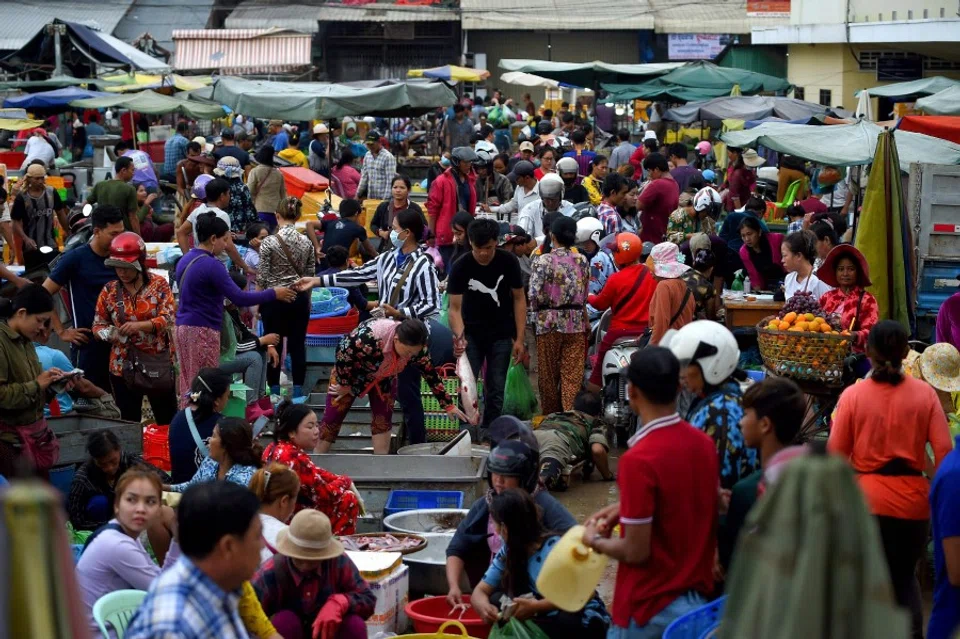
There is a Khmer saying that goes: "Where there is water, there are fish. Where there is land, there are Chinese." This saying reflects the long presence of Chinese in Cambodia dating back centuries, as evidenced by historical accounts and famed temple carvings. However, the presence of Chinese in Cambodia today is unprecedented in scale and in the intensity of persons, investment and development aid, all beginning in the early 2000s.
The estimated number of Chinese nationals residing in Cambodia was around 700,000 at its peak in 2019, not counting the annual two million Chinese tourists who visit the country. The total volume of investments in 2019 was US$9 billion and bilateral trade reached US$8.53 billion the same year. China's financial aid to Cambodia totalled US$5.27 billion in the period from 2001 to 2018, with an additional US$600 million pledged from 2019 to 2021.
China's engagement with countries like Cambodia is based on the concept of "soft power" which, quoting Joseph Nye, "rests on the ability to shape the preferences of others ... [It] is the ability to get what you want through attraction rather than coercion or payments. It arises from the attractiveness of a country's culture, political ideals, and policies." The Chinese government's objective is therefore to appeal to the Cambodian government and public to share China's vision of building a shared future for all.
By 2019, through large-scale investment in the special economic zone, hotels, resorts, condominiums, casinos, alongside small Chinese-owned retail shops, restaurants and other service sectors, the Chinese have literally taken over the city.
Despite its intense engagement, Beijing's soft power has thus far appeared to have landed in a hard place in Cambodia. Cambodian press reports and social media posts paint a negative image of the Chinese in Cambodia, particularly in Sihanoukville. However, in recent months, China's "face-mask diplomacy"-a reference to China's medical assistance to foreign countries to fight the Covid-19 pandemic - toward Cambodia has appeared to shift the perception of the Cambodian public.
Utilising data from fieldwork in Cambodia and an expert-opinion survey, this article analyses perceptions of the Cambodian public toward Chinese before and after the Covid-19 pandemic, and offers a perspective on the future trend of Chinese soft power in Cambodia.
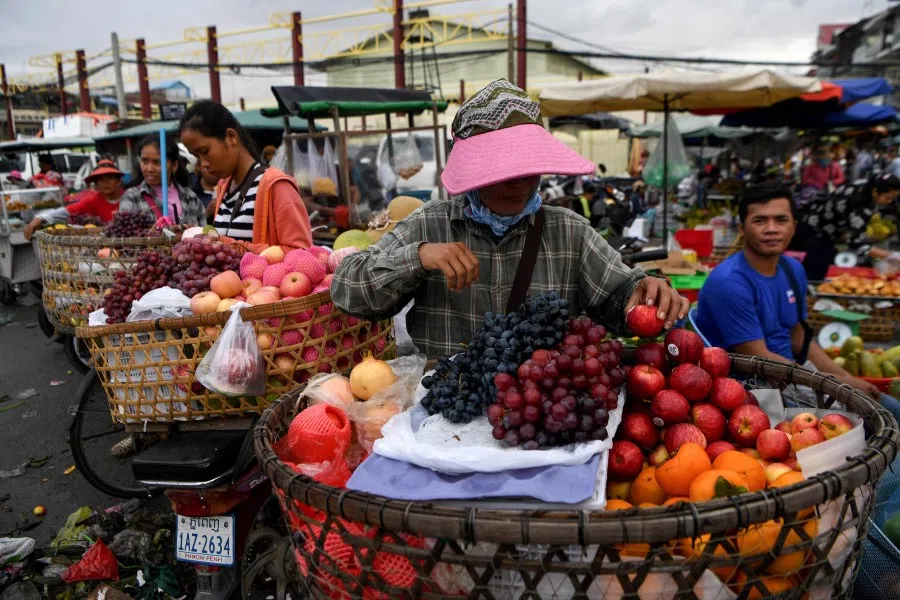
The 'fall' of Sihanoukville
Nowhere in Cambodia is the presence of Chinese more evident than in Sihanoukville, Cambodia's only deep-water seaport. By 2019, through large-scale investment in the special economic zone, hotels, resorts, condominiums, casinos, alongside small Chinese-owned retail shops, restaurants and other service sectors, the Chinese have literally taken over the city. Although Chinese investment, trade, and aid contributed to economic growth in Sihanoukville and elsewhere in Cambodia, Cambodian perceptions of Chinese have been overwhelmingly negative.
Shockingly, anecdotal evidence suggests that resentment against Chinese among some Cambodians is almost as intense as their long-held historical feelings toward Vietnamese. A long-time Chinese diplomat to Cambodia noted this phenomenon: "I have been in Cambodia for decades. Cambodia is a very kind nation and has always been very friendly to the Chinese people. Cambodians used to hate Vietnamese, but now the problems caused by Chinese in Sihanoukville are very serious, which increasingly makes some Cambodians hate Chinese. The problem caused by the Chinese in Sihanoukville is like a wound." It is critically damaging for the image of any foreigner whose conduct or intention the Cambodians compare to those of the Vietnamese. Throughout its history, a great number of Cambodian people and politicians have accused Vietnam of having the intention to 'swallow' Cambodian territory and blamed it for the ills in Cambodia.
The demand for land by Chinese investors injected abundant cash into the real estate sector, benefiting Cambodians with links to foreign capital and land ownership. However, many residents in Sihanoukville continued to experience economic hardship.
Land conflicts have been contentious issues since Cambodia shifted to a market economy in the late 1980s. Expanded Chinese economic activities in Sihanoukville raised the demand for land which has resulted in incidents of land grabbing by politically well-connected and wealthy Cambodians. Although Chinese investors might not have been involved, Cambodians associated the incidents of land grabbing to the influx of Chinese to Sihanoukville.
The demand for land by Chinese investors injected abundant cash into the real estate sector, benefiting Cambodians with links to foreign capital and land ownership. However, many residents in Sihanoukville continued to experience economic hardship. Rising demands by the Chinese for rents, food and services pushed prices, as residents of Sihanoukville often put it, "high into the clouds", severely affecting poor people in Sihanoukville. From 2016 to 2019, land prices, housing prices and rents in Sihanoukville rose at the astonishing rate of 10 to 20 times; however, that rate has plummeted following the closure of online gambling and the Covid-19 pandemic.
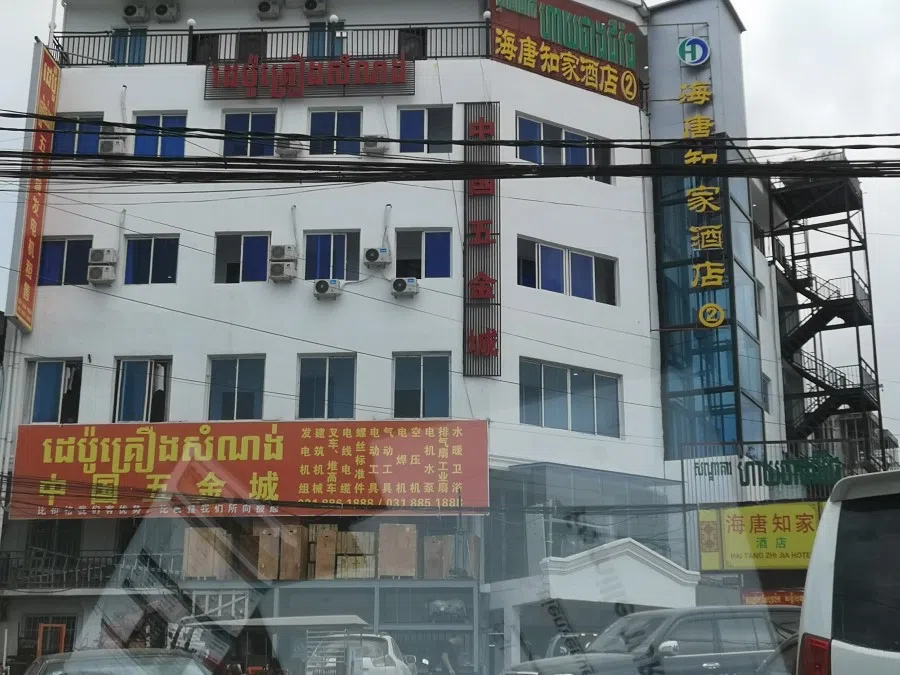
Despite the booming of Sihanoukville's construction and gambling industries, employment for local Cambodians remained limited. Similar to their operations elsewhere in the developing world, Chinese companies in Cambodia followed the closed-loop business model that relies on Chinese inputs and labour.
The "Blue Bay" real estate project in Sihanoukville is an example par excellence of this. Besides purchasing land from Cambodians, the project subcontracted the work out to Chinese companies which imported construction materials, equipment and workers from China, despite Cambodia having abundant labour of its own. Sihanoukville's tourism economy had catered to Cambodians and Westerners, but with the large Chinese presence and rising crime rate, these visitors dropped in numbers, resulting in loss of employment for local people. More critically, despite their ballooning numbers, Chinese largely stay within the bubble of vertically Chinese owned and operated services. This limits the spillover economic effects for local residents.
Moreover, with their business acumen, many Chinese seized the opportunity to open small retail shops serving Chinese workers, thus undercutting Cambodian-own businesses. A Cambodian restaurant owner in Sihanoukville complained, "Initially, our restaurant business benefited from the increased number of Chinese. However, as more and more Chinese investors arrived, some Chinese began to open restaurants. Chinese people basically prefer to eat in Chinese restaurants, and rarely come to our local restaurants."
Unfortunately, many of them (young Chinese males) fell into traps set by criminal gangs and ended up losing their investment. Stranded in Cambodia, many of them were drawn into criminal activities in Sihanoukville.
Referring to potential negativity associated with China's opening-up policy, China's former paramount leader - Deng Xiaoping - once famously said: "when you open the door for fresh air, flies naturally come in." This trend has occurred with Cambodia's opening up to Chinese investment.
One key element of globalisation are technoscapes - an array of technology such as telecommunication, finance, and modern transport that facilitates the movement of people, money and services at high speeds and large volume across national boundaries. Bad elements, through the use of "technoscapes", can skillfully prey on states with weak capacities such as Cambodia by engaging in the non-transparent movement of people, money and services. The Chinese government's crackdown on money laundering and corruption in 2014, particularly in Macau and the 2018 Special Criminal Syndicate Combat pushed transnational networks of criminals to seek opportunities in Southeast Asia.
With the growth in its real estate, tourism and casinos - particularly online gambling - and with its state capacity being weak, Cambodia provided a fertile ground for these transnational crime networks. Moreover, Sihanoukville was the destination for young Chinese males seeking a quick path to wealth. These people in many cases borrowed money from relatives and friends for investment in Cambodia. Unfortunately, many of them fell into traps set by criminal gangs and ended up losing their investment. Stranded in Cambodia, many of them were drawn into criminal activities in Sihanoukville.
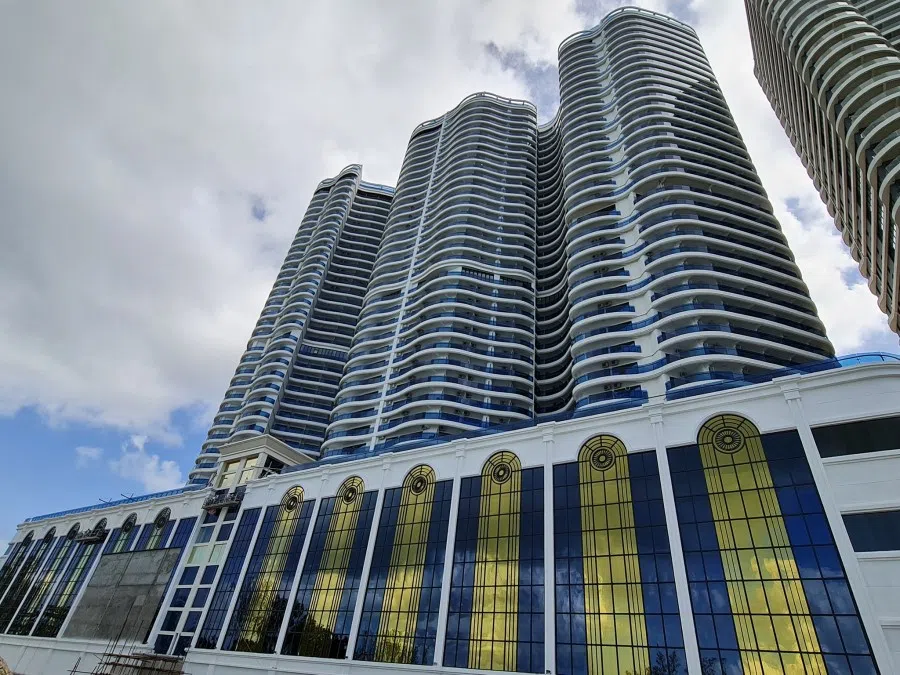
Generally, a thriving gambling industry is accompanied by a proliferation of nightclubs, bars and other entertainment venues, and by criminal activities such as drug dealing, human smuggling, gun trafficking and money laundering. News and social media posts have often reported on street gang fights, kidnappings, and murders happening in broad daylight in gambling cities such as Sihanoukville and Poipet. In fact, a large number of Cambodians regard Sihanoukville as a city under siege and therefore a no-go zone for Cambodians.
Another visible effect of Cambodia's poor state capacity is the poor enforcement of construction codes in Sihanoukville. For example, in June 2019, a Chinese-funded structure in Sihanoukville collapsed killing 25 Cambodian workers. Subsequent inspections exposed an alarming scale of dangerous sub-standard construction, leading the Cambodian authorities to order the demolition of at least 14 buildings.
News reports and social media posts also covered traffic accidents involving Chinese businessmen in SUVs with military and police license plates who appeared untouchable due to their connections to Cambodian officials.
An additional source of Cambodian animosity toward Chinese in Cambodia is behavioural issues. Many Chinese working in Cambodia are young men with limited education and without overseas travel experiences. Their loud behaviour and lack of respect for local customs and etiquette strongly irritate Cambodians.
Covid-19: China to the rescue
The first reported case of Covid-19 in Cambodia, made in January 2020, created immediate fear among Cambodians. This was understandable for two reasons. The first was the presence of a large number of Chinese in Cambodia and the fact that China was ground zero for the Covid-19 pandemic. The second factor was Cambodia's poor healthcare system, characterised by a limited supply of hospital beds (0.71 hospital beds for 1,000 population) and intensive care capacity, and the fact that its better-equipped hospitals are often overwhelmed even without a pandemic. As noted by Chheang Vannarith, executive director of Asian Vision Institute, "The healthcare system in Cambodia is not ready to cope with a large-scale pandemic outbreak. Let's say in case there are thousands of infected patients, the facilities and medical staff will be overwhelmed."
One may be skeptical of official accounts of the positive effects of face-mask diplomacy, but our research suggests a clearly affirmative impact on the Cambodian public.
The havoc caused by the Covid-19 pandemic has however presented a diplomatic opportunity for China. The Chinese government, through its "face-mask diplomacy," brought some calm to Cambodia. Cambodia was the first country to receive tons of Chinese medical supplies, such as ventilators, medical masks, and test kits. China also sent medical experts to train Cambodian medical staff on emergency preparedness, diagnostics, and treatment. Expectedly, the governments of Cambodia and China announced that China's medical assistance not only helped raise Cambodia's ability to fight the Covid-19 pandemic, it was also a part of ongoing efforts to maintain and strengthen the two countries' ironclad friendship and build a "community with a shared future".
One may be skeptical of official accounts of the positive effects of face-mask diplomacy, but our research suggests a clearly affirmative impact on the Cambodian public. For instance, Dr. Chhem Rethy, global health diplomacy adviser at the Ministry of Foreign Affairs and International Cooperation said, "Yes, we [Cambodia] benefit from China's material aid and expertise in Covid management from the public health and hospital management perspective ... Cambodian health care providers have learned from Chinese experts from Wuhan."
Initially in short supply, face masks became widely available after shipments from China. Impressions of Cambodians on China's role in helping the Cambodian government cope with the pandemic which the authors gathered from Facebook posts and shares were also positive. Comforting messages shared by some Cambodian Facebook users said things such as: "It will be alright because of our Chinese friends' help." Expert-informants also shared this positive impression of China. One informant knew of "Cambodians expressing gratitude to China for providing the assistance against Covid-19". Echoing these sentiments, another informant said, "Yes, the Cambodian perception of China has been more positive during the Covid-19 period."
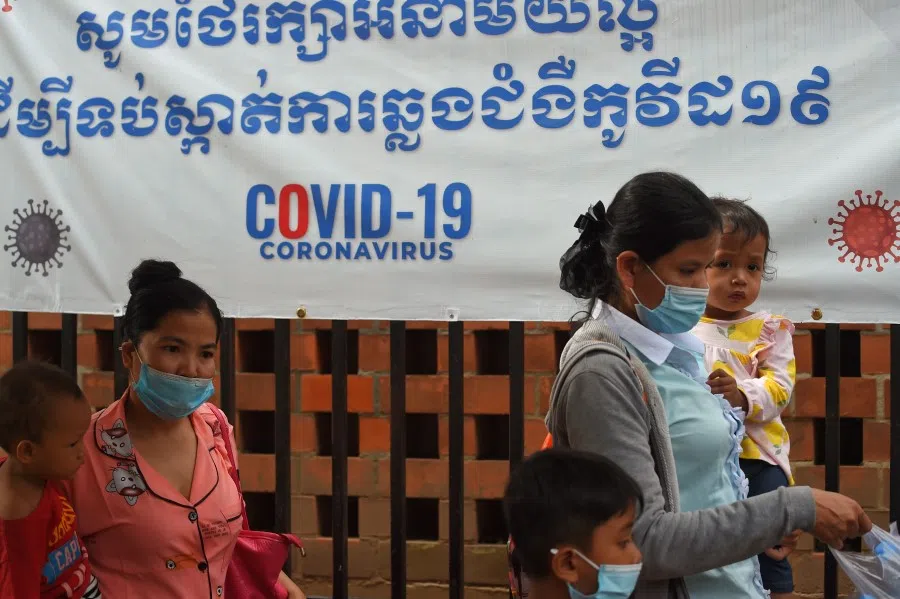
At the time of writing, Cambodia has mitigated the initial fear of the Covid-19 pandemic. Official figures put the total number of infections at 266 (as of August 2020) of which a majority has recovered; and with no reported fatalities. The extent to which China's assistance has contributed to this success is hard to gauge; however, Cambodian public perception is certainly positive. As one of our interviewees Dr Julio Jeldres observes, "Cambodia was also the first country to receive apart from equipment, the first official team of medical experts in a bid to provide epidemic containment supplies and share diagnostic and treatment experience. They are still here and that may explain why there have been no deaths in Cambodia so far and most patients have recovered."
Chinese make up a majority of customers in the online gambling operations in Sihanoukville and elsewhere in Cambodia, turning online gambling into a "pumping machine" for foreign capital outflow, reportedly draining Beijing of over 600 billion RMB annually.
A new beginning?
China had apparently intended to use Cambodia as its beachhead to showcase its soft power in Southeast Asia. Bad behaviour, criminal activities and the perceived impunity of Chinese nationals in Sihanoukville and Phnom Penh, in addition to the negative local economic impact, had however generated much resentment among Cambodians against Chinese, thereby undermining China's efforts to project its soft power.
This year saw initiatives by the governments of Cambodia and China to revamp Sihanoukville. They increased their collaboration in order to bring order to the city. The Cambodian government appointed Khouch Chamroeun - with a reputation as a "can-do" man - as the new governor, and at the request of the Chinese government, the Cambodian government closed down online gambling operations in Sihanoukville.
The gambling industry has not only brought much negative effects to Cambodia but also to China. Apparently, overseas online gambling poses a threat to China's own national security. It has been discovered that some illegal online sites based overseas engage in internet fraud and pornography. Moreover, Chinese make up a majority of customers in the online gambling operations in Sihanoukville and elsewhere in Cambodia, turning online gambling into a "pumping machine" for foreign capital outflow, reportedly draining Beijing of over 600 billion RMB annually. The closure of online gambling resulted in the exodus of roughly 120,000 Chinese nationals from Sihanoukville and a drop in property values. This development, compounded by the impact of Covid-19 on the tourism sector, brought a sense of calm to Sihanoukville.
Improved conditions in Sihanoukville and the positive perception of Cambodians toward China resulting from China's "face-mask diplomacy" can improve Chinese soft power in Cambodia. However, the immediate challenge to China's image in Cambodia is contingent on the ability of the governments of China and Cambodia to complete their plan to transform Sihanoukville into Cambodia's Shenzhen. While Covid-19 has helped to improve China's image, it also constrains China's ability to help Cambodia transform Sihanoukville into Cambodia's Shenzhen, due to the economic slowdown that it aggravated in China. A delay in transforming Sihanoukville into a more diversified economic entity might hurt China's image, with the Cambodian public thinking that China is merely "talking the talk" but not "walking the walk" in its claim of building a shared future for both countries.
This article was first published as ISEAS Perspective 2020/111 "Cambodia: Hard Landing for China's Soft Power?" by Jing Jing Luo and Kheang Un.






